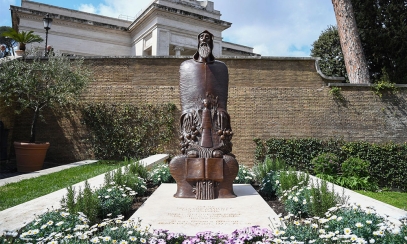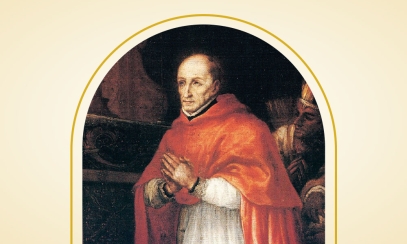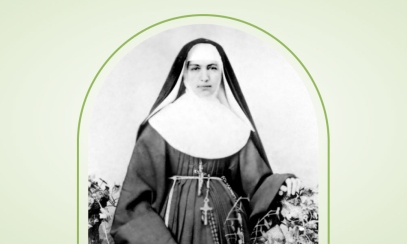Saint Hilary of Arles
Feast day: May 5
Patron saint: of France
Canonized: precongregation
Meaning of name: derived from the Latin hilaris, meaning “cheerful.”
Claim to fame: Born in France in the fifth century he entered the abbey of Lérins then presided over by his kinsman Honoratus (Saint Honoré), and succeeded Honoratus as archbishop of Arles in 429 at the age of 29. Following the example of St Augustine, he is said to have organized his cathedral clergy into a congregation, devoting a great part of their time to social exercises of ascetic religion. However, Hilary encountered difficulty in his relationships with other bishops over whom he had some jurisdiction. He unilaterally deposed one bishop. He selected another bishop to replace one who was very ill but, to complicate matters, did not die. Pope St. Leo I the Great kept Hilary a bishop but stripped him of some of his powers. Hilarius was deprived of his rights to consecrate bishops, call synods, or oversee the church in the province and the pope secured the edict of Emperor Valentinian III. The papal claims were made imperial law and violation of them subject to legal penalties.
Why he is a saint: Hilary was born to a wealthy family from northern Gaul in 401. Related to Honoratus – later St. Honoratus – Hilary was groomed to enter religious life. At the urging of his relative, Hilary gave up his wealthy lifestyle and offered all his possessions to the poor. He submitted to a life of Scripture study. As archbishop, he continued to live a strict monastic life, earned money for the poor doing manual labor, sold sacred vessels to ransom captives, traveled everywhere on foot and wore simple clothes unusual to his high status as archbishop.
Best quote: “Complain as little as possible of your wrongs, for as a general rule you may be sure that complaining is sin ... because self-love always magnifies our injuries.”
How he died: Little is known of his death, which occurred on May 5, 449 at the age of 49. Pope Leo the Great testified to St. Hilary’s memory as a man of extreme piety, who learned through hardship how to be a bishop.



